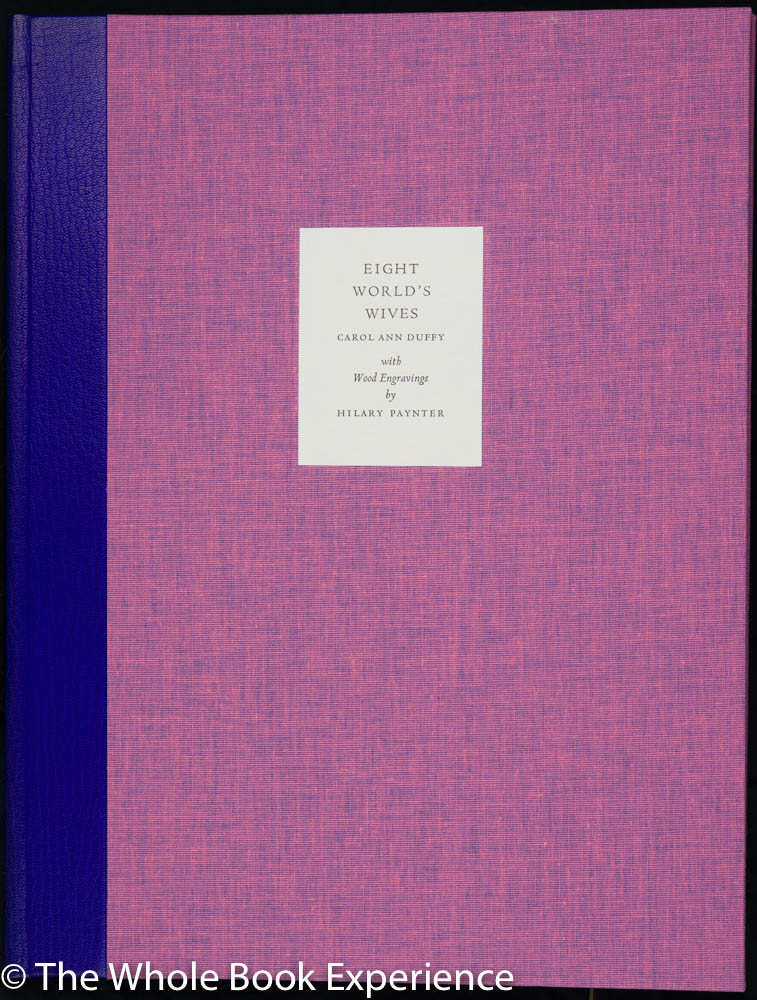
I’ve been a poetry lover as far back as I can remember. At my age, that probably started, I think, with The Cat in the Hat and Green Eggs and Ham. The first “serious” poetry I remember, and by that I simply mean more serious subject matter and not any knock on Dr. Suess, was from a 1932 edition of The Standard Book of British and American Verse I grabbed from my Nana’s shelf as a teen. From that anthology, my earliest favorites were Abou Ben Adhem by Leigh Hunt, which is still a favorite, and The Prisoner of Chillon by Lord Byron. Those poems are all pretty straight-forward. And while I also love to tease the meaning out of more obscure and complex poems, sometimes it’s nice not to work too hard, especially when so much in the world and in life right now is hard enough.
That ease of language and understanding made it a joy to discover former U.K. Poet Laureate Carol Ann Duffy. And to discover it in a beautiful private press edition was icing on the cake. To be honest, it wasn’t the poetry that first attracted me to the book, it was Hilary Paynter’s illustration of Mrs. Aesop that caught my attention. And ironically for someone with no tattoos, my first thought on seeing that illustration was that it would make a perfect bookish tattoo if I was ever to get one.
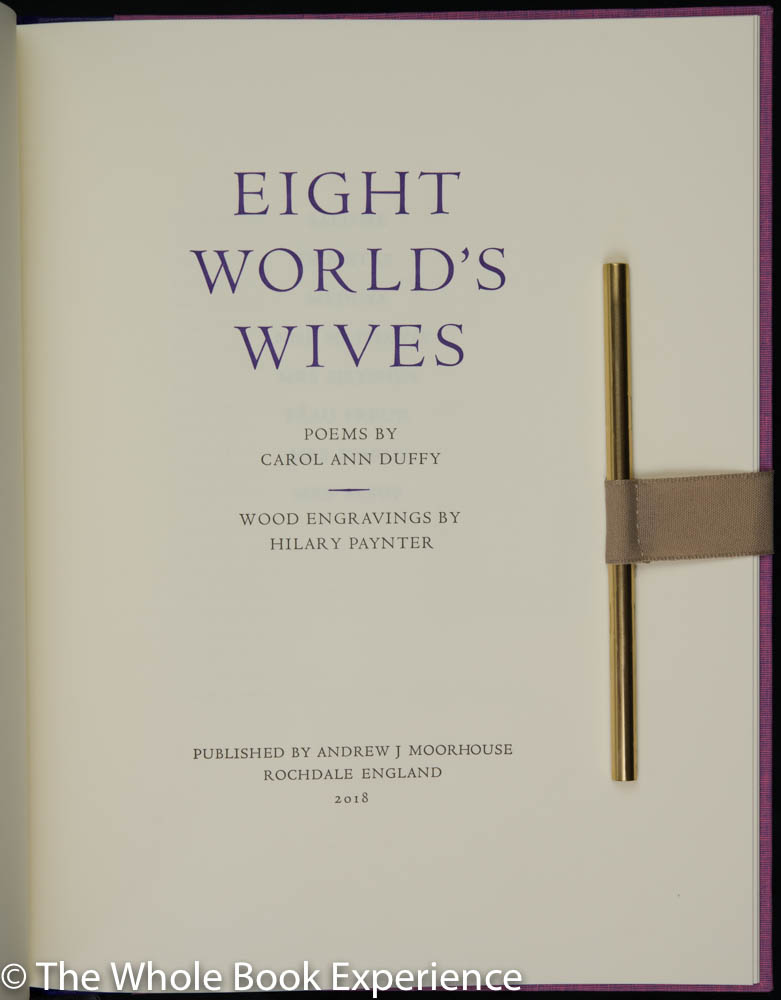
But there is so much for me to like about this poet. I’ve been trying to read more women writers, and more LGBTQIA+ literature, from more viewpoints than that of the winners, and the most privileged, and the heroes, and the male. This selection of Duffy’s poetry, and the collection it came from gives me that (Yes, I had to go out and find The World’s Wife so I could read about the rest of the ladies besides the eight that Andrew Moorhouse selected for his book). I don’t know how he whittled his wives down from twenty-nine to eight but it would have taken me a while to do that. I like too many of them for too many reasons. Cutting it down would be so much pressure and only made worse by lines like this from the unselected Eurydice:
But the Gods are like publishers,
–Eurydice, from The World’s Wife
usually male,
and what you doubtless know of my tale
is the deal.
Carol Ann Duffy and the ladies in her poems speak their minds.
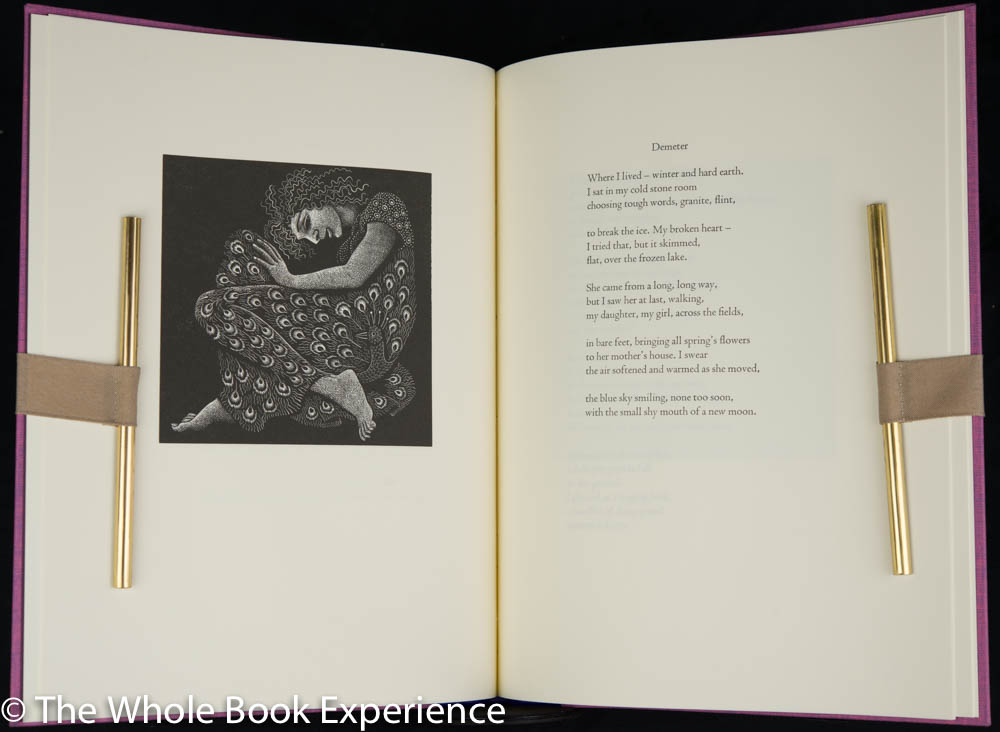
And they are speaking their minds about men who are our heroes and that we mythologize and find extraordinary. But at what cost to those around them? And especially to their partners and significant others? Well, as Mrs. Aesop says:
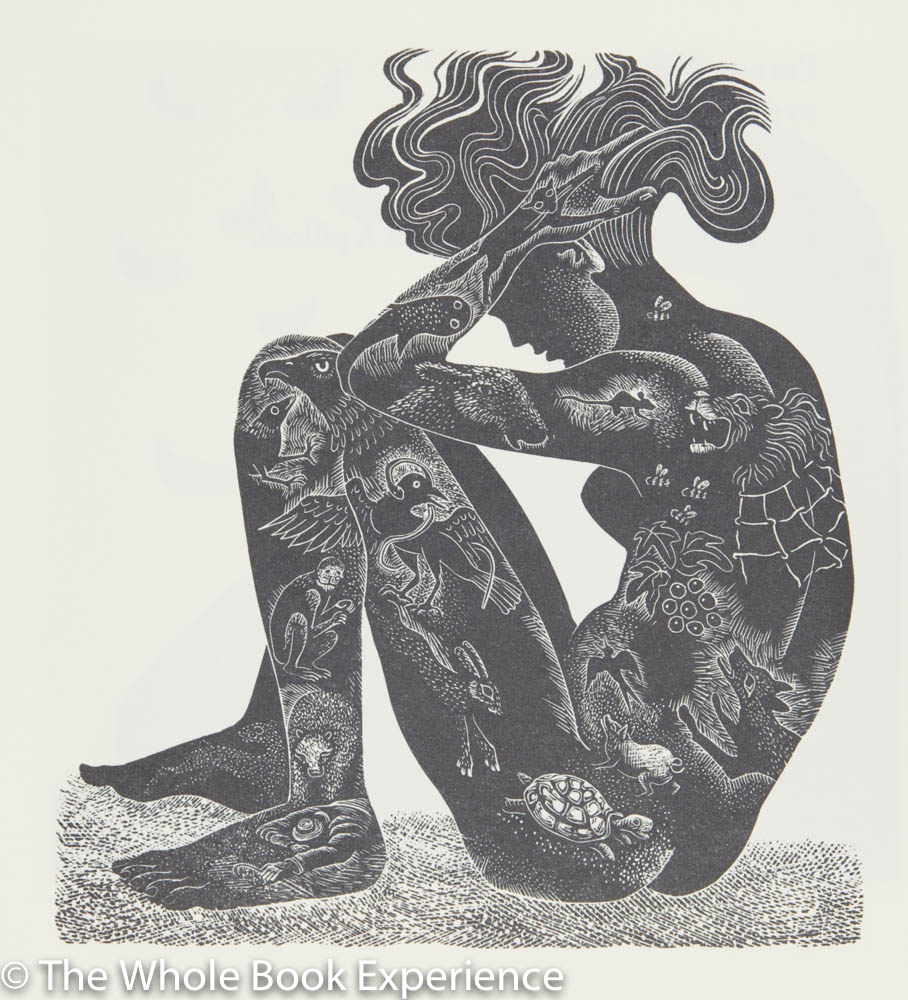
On one appalling evening stroll, we passed an old hare
–Mrs Aesop, Eight World’s Wives
snoozing in a ditch — he stopped and made a note —
and then, about a mile further on, a tortoise, somebody’s pet,
creeping, slow as marriage, up the road. Slow
but certain, Mrs Aesop, wins the race. Asshole.
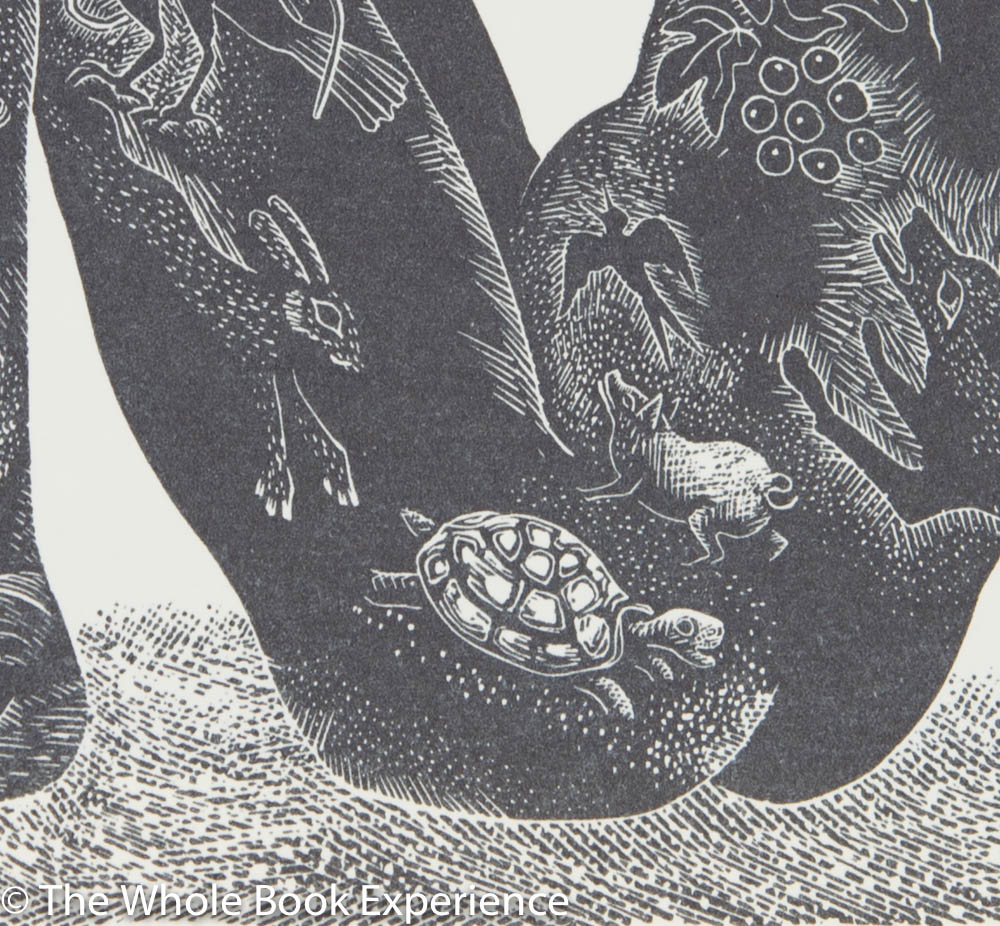
Or how about Mrs. Icarus? She’s short and to the point:
I’m not the first or the last
–Mrs Icarus, Eight World’s Wives
o stand on a hillock,
watching the man she married
prove to the world
he’s a total, utter, absolute, Grade A pillock.
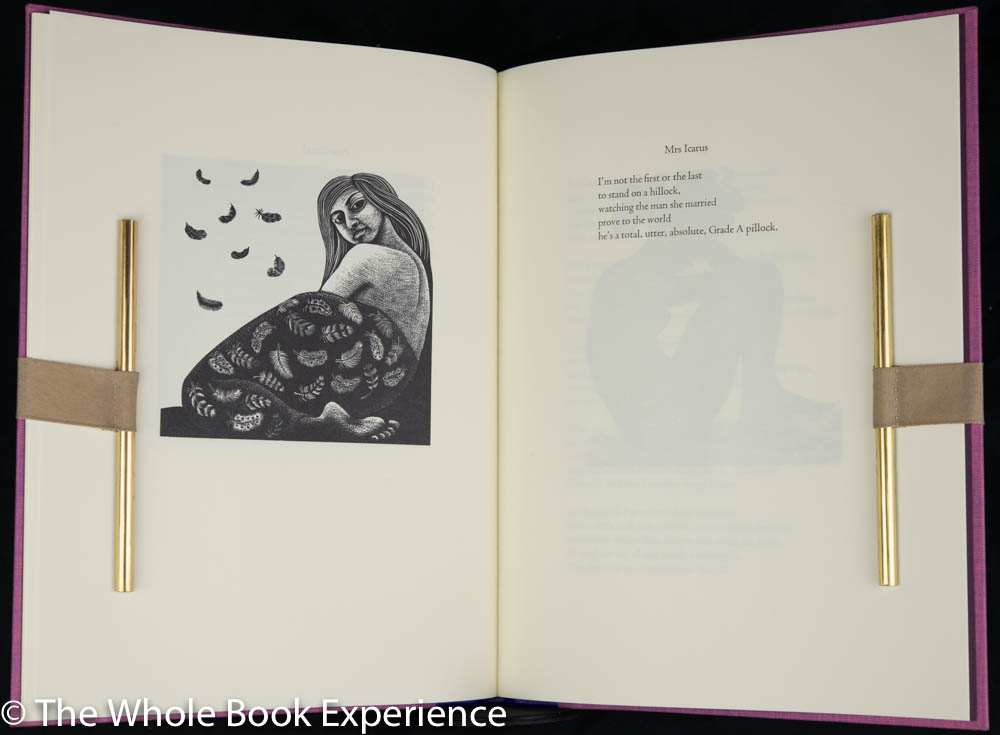
And that brave Ulysses, hero from the mists of time, whose craftiness and bravery is the envy of men everywhere? Circe is over him.
Of course, I was younger then. And hoping for men. Now,
–Circe, from The World’s Wife
let us baste that sizzling pig on the spit once again.
Frau Freud has lots to say about the object of her husband’s envy. I even learned a few new expressions for that fixation of his before she summed it up:
I suppose what I mean is,
–Frau Freud, from Eight World’s Wives
ladies, dear ladies, the average penis — not pretty…
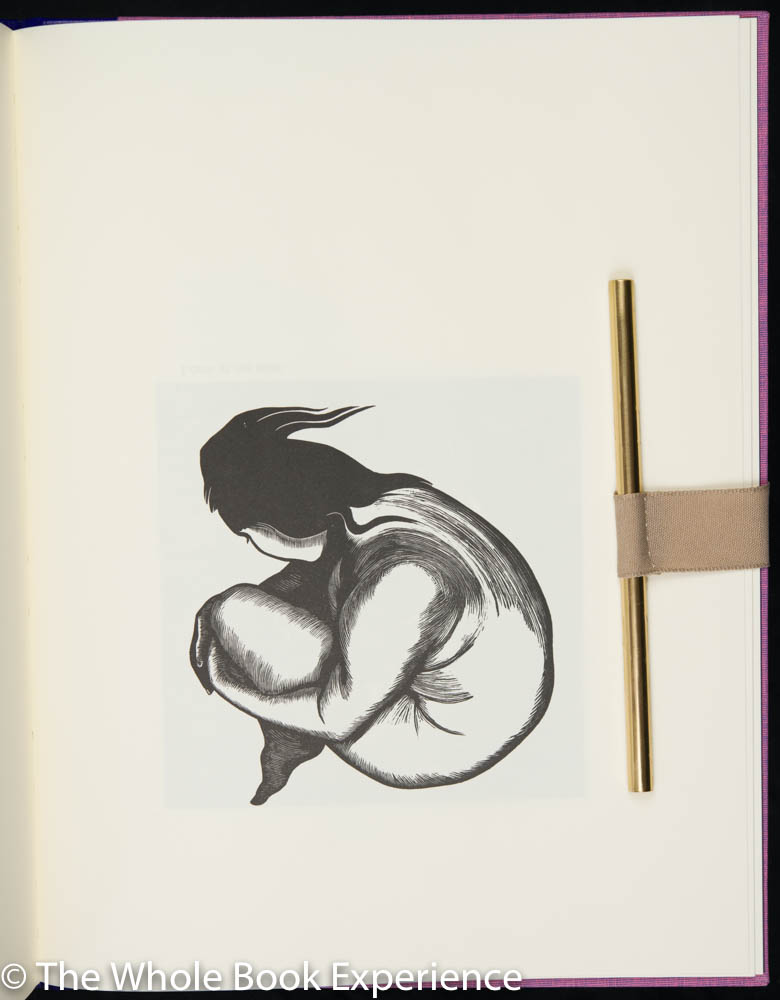
And no breaks for men who don’t learn to use their special purpose for mutual good. Mrs. Rip Van Winkle is alive in this poem but did not miss her husband:
But what was best,
–Mrs Rip Van Winkle, from The World’s Wife
what hands-down beat the rest,
was saying a none-too-fond farewell to sex.
She’s not best pleased when he wakes up old but with a man’s access to pharmaceuticals for reproductive health.
But, again, much of this seems directed at what society thinks of as the ‘catches’ among the men. There is hope, however, for those of us who don’t look like the people we see in mainstream media commercials and advertisements. Mrs. Beast has this advice:
I could have told her — look, love, I should know,
— Mrs Beast, from The World’s Wife
they’re bastards when they’re Princes.
What you want to do is find yourself a Beast. The sex
is better.
I really enjoyed all of the poems in my paperback copy of The World’s Wife and so am really happy to have the Eight World’s Wives in this special edition.
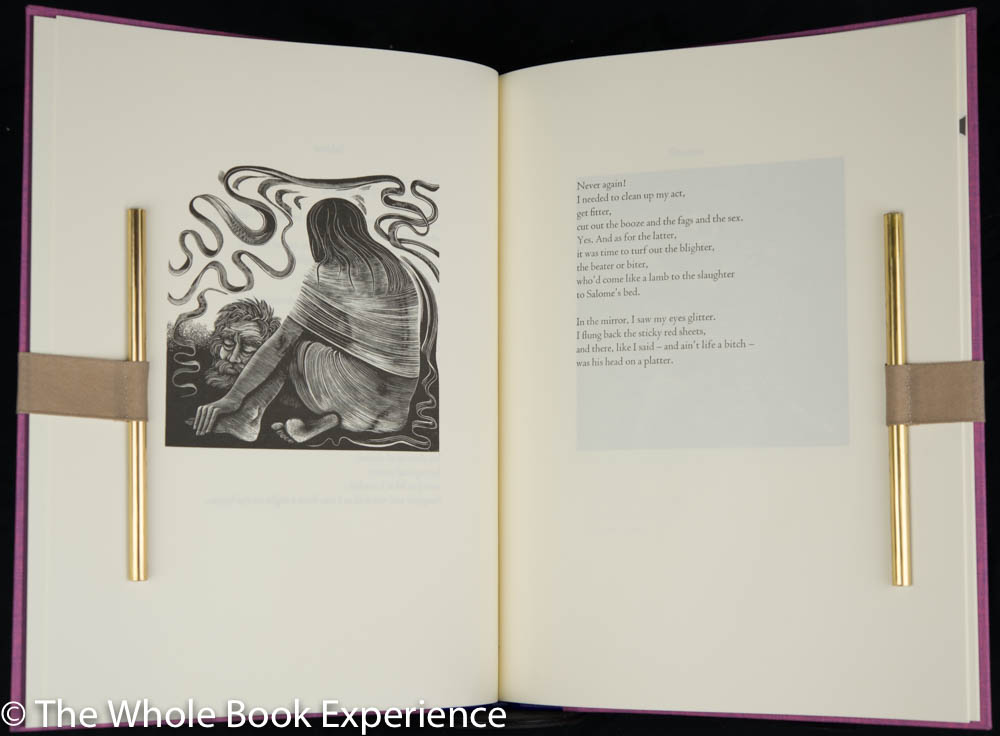
Before I talk about the book itself, I have to talk about the proprietor of the press a bit first. Like a lot of the people that I have dealt with at various presses, he’s personable and delightful to buy books from, and I’ve had fun getting a little window into his life through his social media. But maybe the most fascinating thing about his story for those of us booklovers who have ever dreamed about producing books, is that he jumped into publishing with no experience whatsoever other than being a collector and lover of beautiful books. From a payroll administrator to a fine press publisher of books like Eight World’s Wives is pretty impressive and inspiring. It helped that he did the smart thing of working with an experienced pressman in John Grice at Evergreen Press and a quality binder in the Fine Book Bindery. You can get more details on his story from video, article, and podcast linked to on his website here. I look forward to seeing future books from him and maybe even adding some to my library.
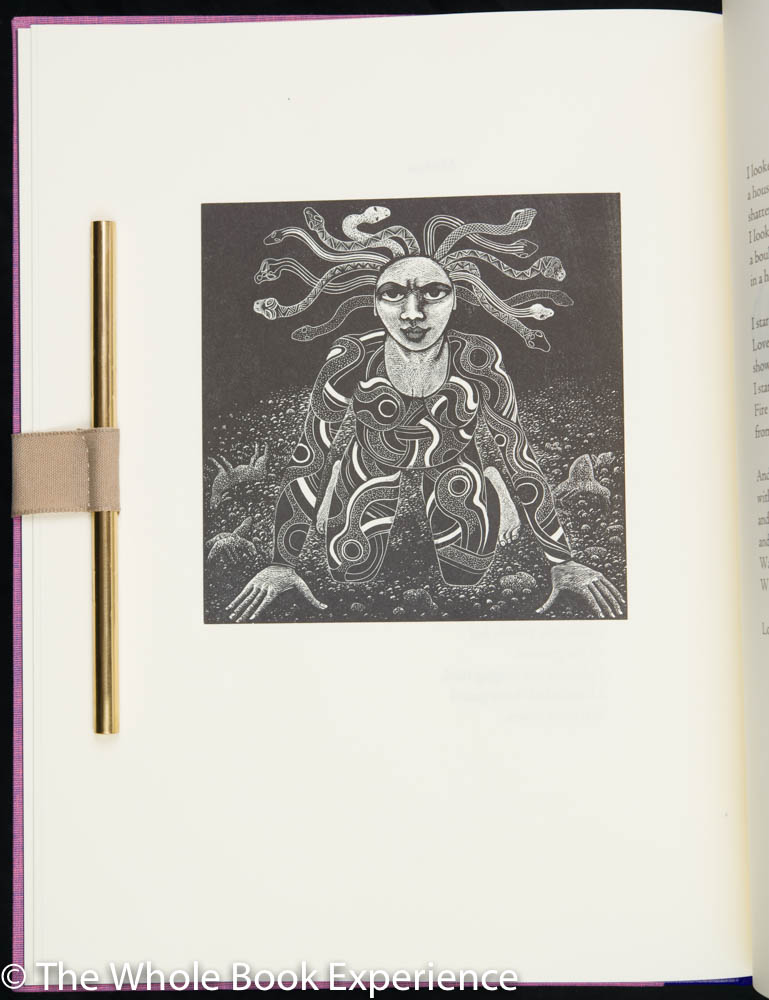
Loving poetry means there are even more beautiful books to discover and maybe acquire in the world. Poetry is often done in the fine and private press world for a myriad of reasons and in some ways seems to give designers even more freedom in some ways than a work of prose might, especially a lengthy prose work like a novel. Eight World’s Wives is very tastefully designed and executed. It helps that Moorhouse is a lover of poetry and that the whole purpose of his publishing is to publish outstanding living poets.

The pink and purple binding is probably a nod to the feminine perspective of the poems within and the purple is mirrored on the title page where the text is printed in purple and black. The page size is large with generous margins and a nicely sized Centaur type. The illustrations by Paynter are printed en face to the corresponding poems and seem to me to be in direct conversation with the poems. I think Moorhouse hit a home run in pairing up poet and illustrator here. My only small wish is for a spine label on the book or the slipcase or both. But that’s always been a pet peeve of mine. But I would sure love to have more of these beautiful books on my shelf.

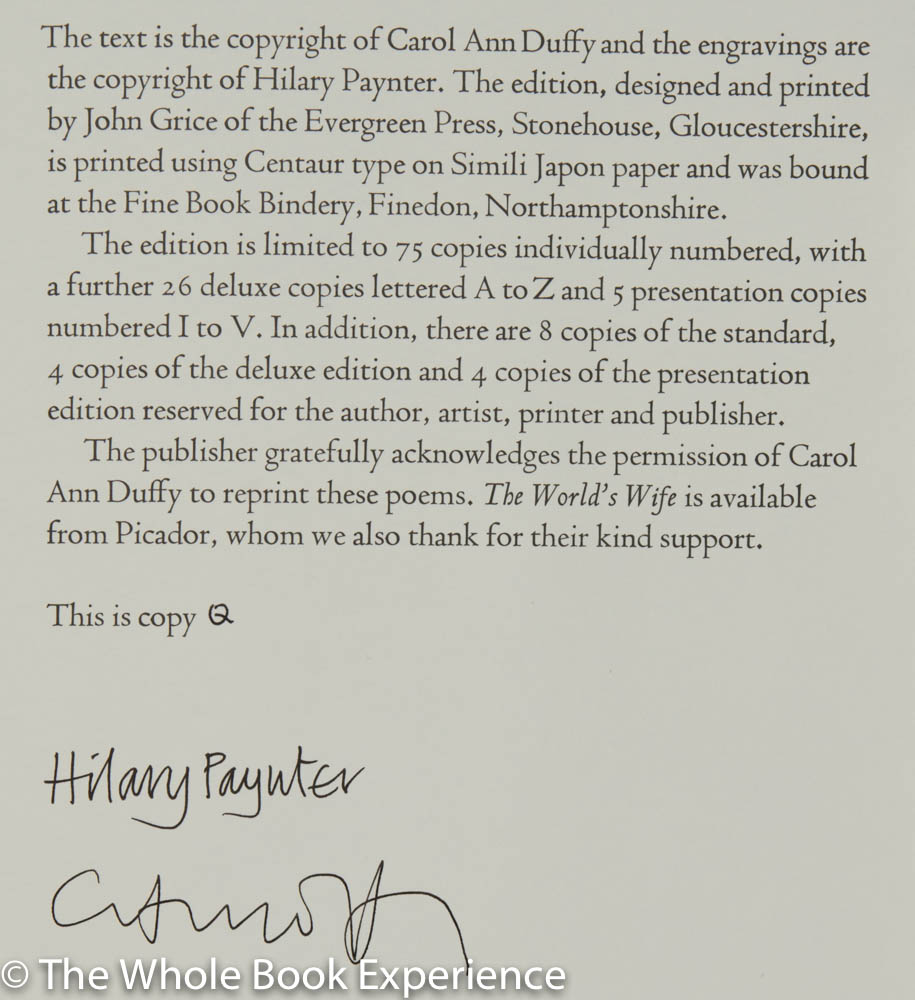
AVAILABILITY: The edition was limited to 75 in the numbered standard state and 26 in the lettered deluxe state, as well as 5 in the roman numeral(ed?) presentation state. The book is shown as sold out on their website but it couldn’t hurt to contact Mr. Moorhouse if you are interested.
